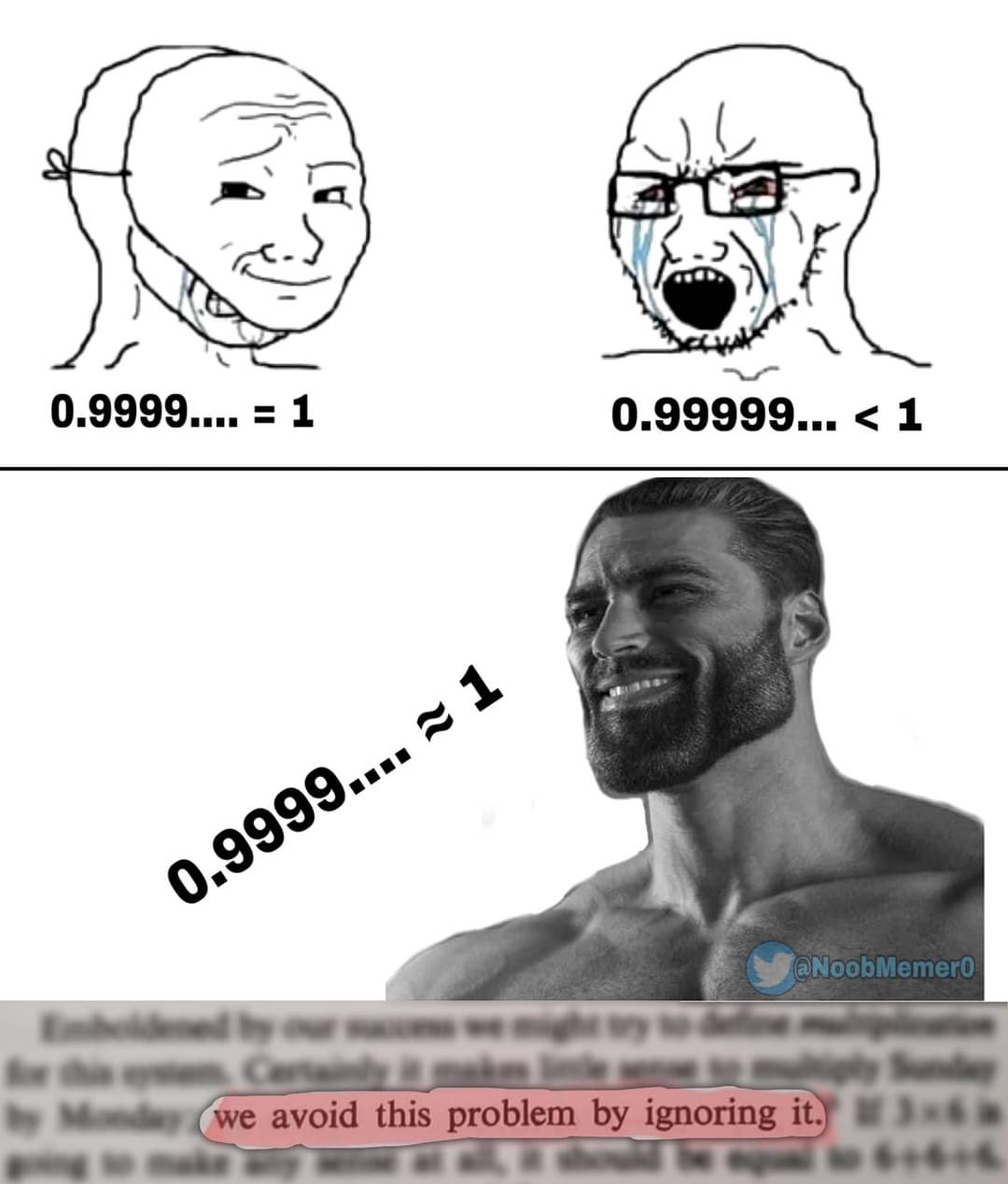this post was submitted on 27 Jun 2024
792 points (95.1% liked)
Science Memes
11161 readers
1699 users here now
Welcome to c/science_memes @ Mander.xyz!
A place for majestic STEMLORD peacocking, as well as memes about the realities of working in a lab.

Rules
- Don't throw mud. Behave like an intellectual and remember the human.
- Keep it rooted (on topic).
- No spam.
- Infographics welcome, get schooled.
This is a science community. We use the Dawkins definition of meme.
Research Committee
Other Mander Communities
Science and Research
Biology and Life Sciences
- !abiogenesis@mander.xyz
- !animal-behavior@mander.xyz
- !anthropology@mander.xyz
- !arachnology@mander.xyz
- !balconygardening@slrpnk.net
- !biodiversity@mander.xyz
- !biology@mander.xyz
- !biophysics@mander.xyz
- !botany@mander.xyz
- !ecology@mander.xyz
- !entomology@mander.xyz
- !fermentation@mander.xyz
- !herpetology@mander.xyz
- !houseplants@mander.xyz
- !medicine@mander.xyz
- !microscopy@mander.xyz
- !mycology@mander.xyz
- !nudibranchs@mander.xyz
- !nutrition@mander.xyz
- !palaeoecology@mander.xyz
- !palaeontology@mander.xyz
- !photosynthesis@mander.xyz
- !plantid@mander.xyz
- !plants@mander.xyz
- !reptiles and amphibians@mander.xyz
Physical Sciences
- !astronomy@mander.xyz
- !chemistry@mander.xyz
- !earthscience@mander.xyz
- !geography@mander.xyz
- !geospatial@mander.xyz
- !nuclear@mander.xyz
- !physics@mander.xyz
- !quantum-computing@mander.xyz
- !spectroscopy@mander.xyz
Humanities and Social Sciences
Practical and Applied Sciences
- !exercise-and sports-science@mander.xyz
- !gardening@mander.xyz
- !self sufficiency@mander.xyz
- !soilscience@slrpnk.net
- !terrariums@mander.xyz
- !timelapse@mander.xyz
Memes
Miscellaneous
founded 2 years ago
MODERATORS
you are viewing a single comment's thread
view the rest of the comments
view the rest of the comments

Pi isn't a fraction (in the sense of a rational fraction, an algebraic fraction where the numerator and denominator are both polynomials, like a ratio of 2 integers) – it's an irrational number, i.e. a number with no fractional form; as opposed to rational numbers, which are defined as being able to be expressed as a fraction. Furthermore, π is a transcendental number, meaning it's never a solution to
f(x) = 0, wheref(x)is a non-zero finite-degree polynomial expression with rational coefficients. That's like, literally part of the definition. They cannot be compared to rational numbers like fractions.Every rational number (and therefore every fraction) can be expressed using either repeating decimals or terminating decimals. Contrastly, irrational numbers only have decimal expansions which are both non-repeating and non-terminating.
Since
|r|<1 → ∑[n=1, ∞] arⁿ = ar/(1-r), and0.999...is equivalent to that sum witha = 9andr = 1/10(visually,0.999... = 9(0.1) + 9(0.01) + 9(0.001) + ...), it's easy to see after plugging in,0.999... = ∑[n=1, ∞] 9(1/10)ⁿ = 9(1/10) / (1 - 1/10) = 0.9/0.9 = 1). This was a proof present in Euler's Elements of Algebra.